Introduction #
Matchbook AI “Import Data Process” allows you to import data using the below options. Both Admin/Data Steward users will be able to import data into Matchbook AI and the data import validation process will always assist the users while entering any invalid data or connections.
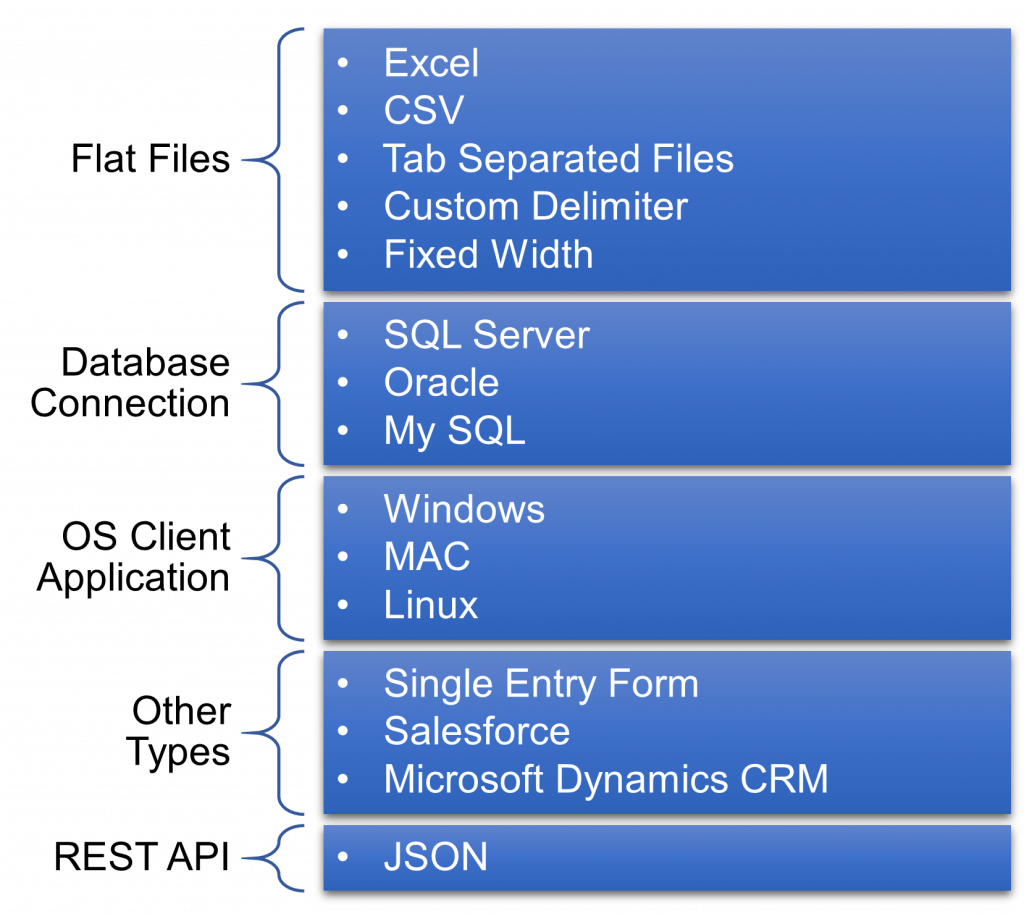
Import Data Details #
To process records through the Matchbook Portal, users must import their data (records) either through the portal, command line, or the REST API interface. Users have two different import options via Portal using multiple file formats:
- Import File
- Single Entry Form
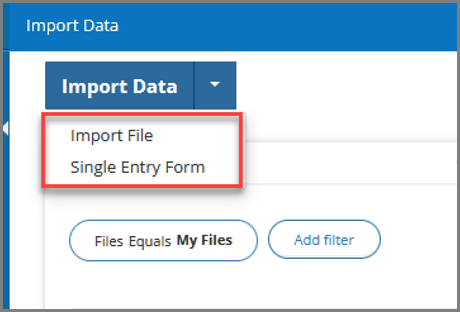
- Import File
- Users can import data in Excel, CSV, TSV, Custom Delimiter, or Fixed Width
- They can import their data using two Import Types: either with Cleanse, Match & Enrichment or with Enrichment only
- Also, these files can be imported with encryption using the PGP file format
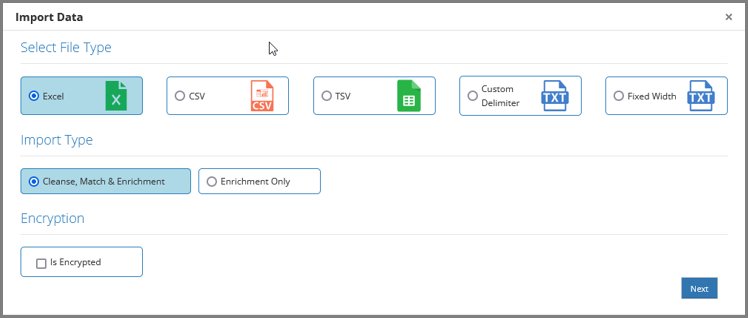
How to Import an Encryption File: #
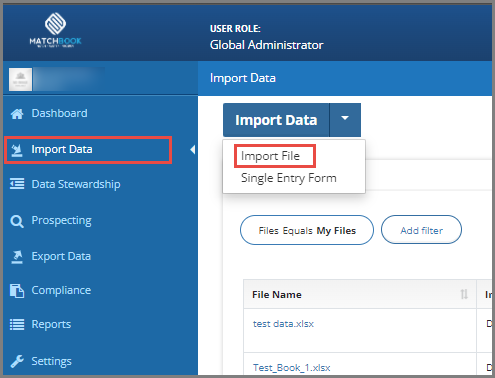
-
- To import the encryption file, navigate to Import Data from the left side menu, select the dropdown in the Import Data and choose Import File, as shown in the above picture. Select a File Type and Import Type, and then select the “Is Encrypted” checkbox, as shown below. Click Next:
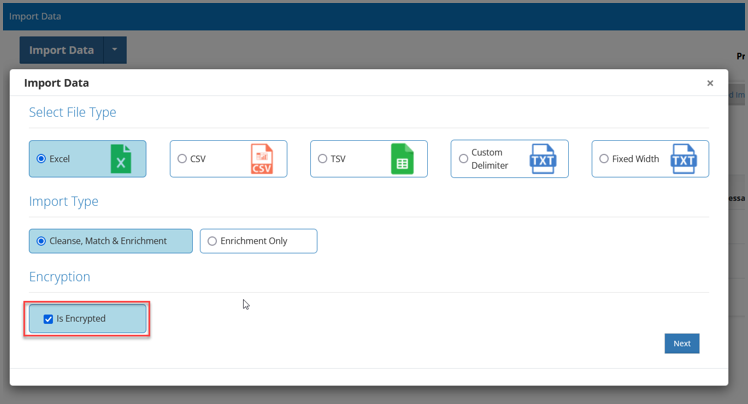
-
- From the next page, upload the desired encrypted file which must be in PGP format. Click on Finish to import the encrypted file:
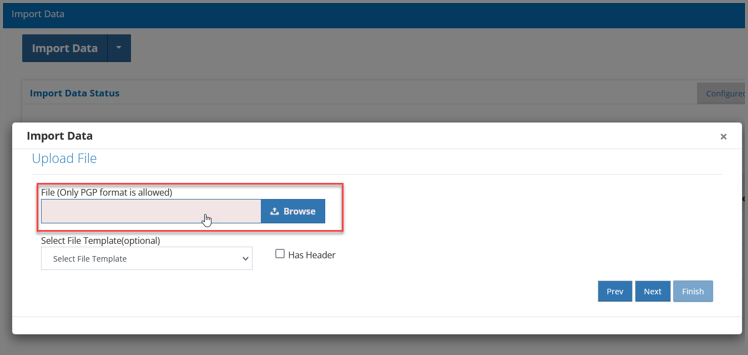
- Single Entry Form
- Users can perform import of a specific record with either Cleanse, Match & Enrichment, or with Enrichment Only:
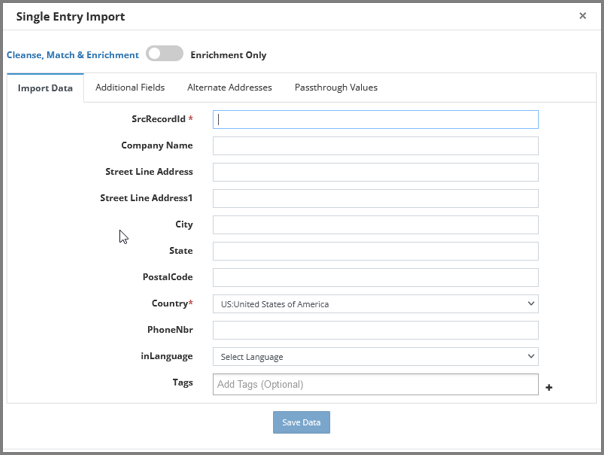
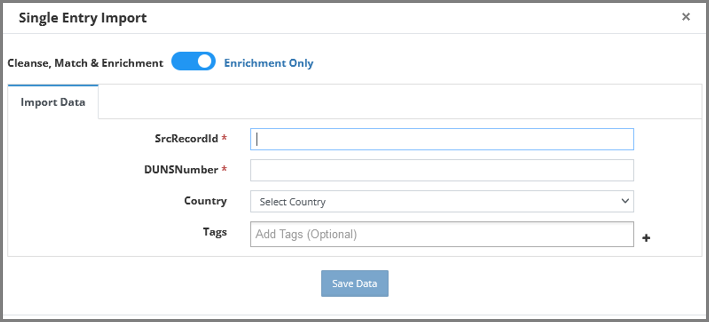
- Users can also add templates which are helpful for providing a layout for the records to be imported. These templates can be used while importing any file.
- Users can check the status of all the files brought into the portal in the Import Data section. It contains File Name, Import Type, Requested Date, Status, Message, and Error Message:
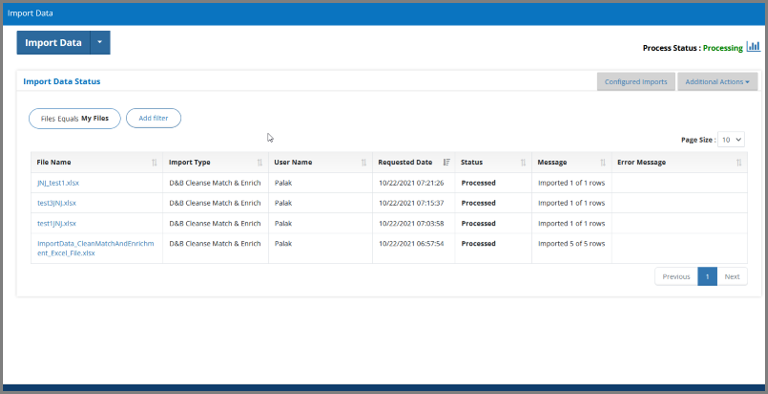
- Users can further check Import File Stats for each imported file in the portal by clicking on the file name. These stats show the number of records in a particular file, and where they have been stored after the Cleanse Match process:
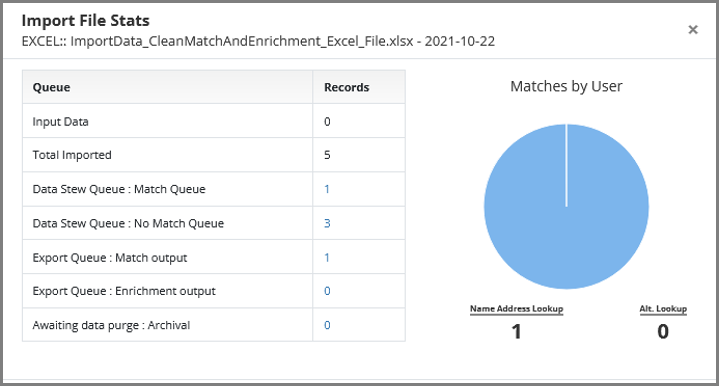
- Users can take advantage of adding a Template List through which they can eliminate the mapping of the column names of the import file while importing any records.
- They have the options to Add, Customize, or Delete any template at any given point in time.
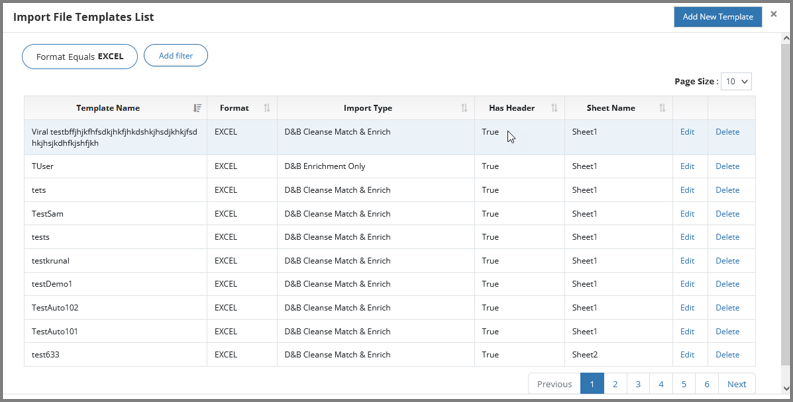
- Add New Template lets users import their choice of layout, which can be any of Excel, CSV, TSV, Custom Delimiter, or Fixed Width file types.
- These templates can be imported for Cleanse, Match & Enrichment, or enrichment Only import type.
- Users can also upload a template that is encrypted:
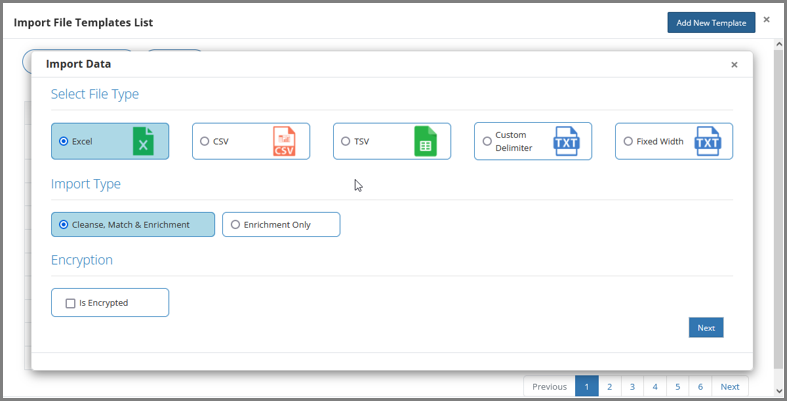
- With the help of Configured Imports, users can see all the External Data Sources. These External Data Sources can be added via Data Integration settings:
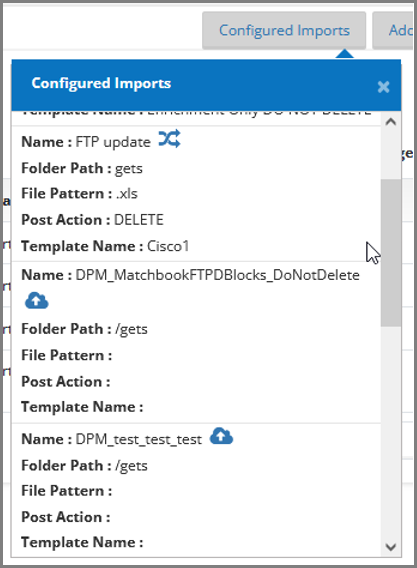
Key Information related to the Data Import Process #
- Both Admins and Data Stewards can import data
- There are two types of administrators:
- Enterprise Admin – have access to the complete system’s rules and data, and can import data belonging to any LOB defined within the system
- LOB Admin – have access only to their LOB’s rules and data, and in turn, can only import data related to their specific LOB group
- There are two types of administrators:
- Data Validation takes place before data is loaded into the portal:
- Country Standardization – Country field data is standardized to a 2-character ISO code required by the D&B Cleanse Match API
- De-duplication within a loaded file – This process occurs at the SrcRecordId level and works by using the last imported record within the file
In the same file, the following details exist in the order presented below:
| RecordID | ImportProcessId | SrcRecordID | Company Name |
| #1 | 1 | ABC123 | Company1 |
| #2 | 1 | DEF123 | Cmp2 |
| #3 | 1 | ABC123 | Company3 |
In the example above, records #1 and #3 would be considered duplicates. Both have the same SrcRecordId (ABC123), although the company names are different. During the import process, the only records that would be imported are records #2 and #3. Record #1’s data would not be imported into MBS.
**Note: It is imperative that all the imported records have a unique SrcRecordId**




